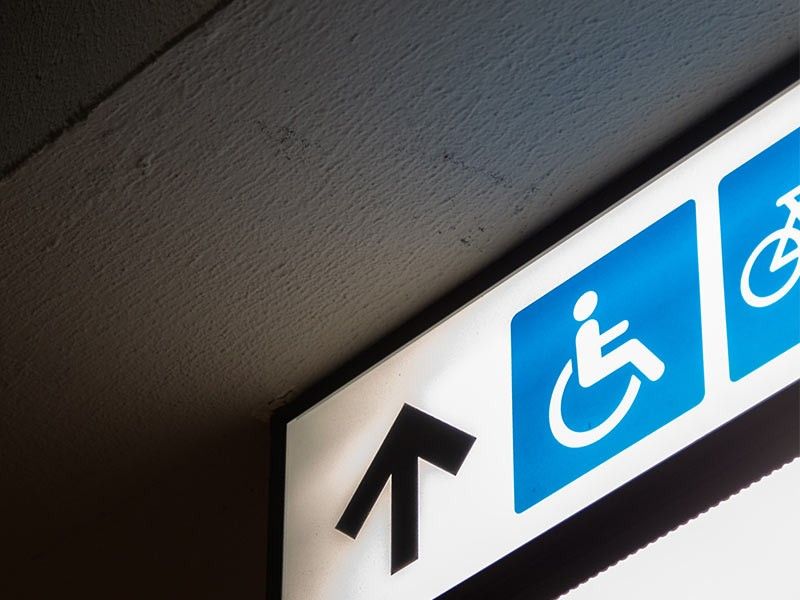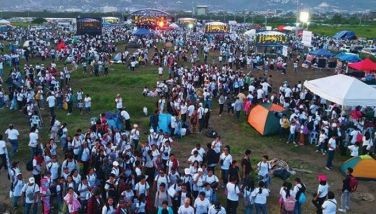'PWDs more prone to abuse': Suspect in rape-killing of special needs girl in Quezon killed

MANILA, Philippines — A pedophile and rapist linked to the killing of a 10-year-old autistic girl was killed by police in Tagkawayan, Quezon province on Wednesday after he supposedly resisted arrest.
According to police reports, Mauro Gravamen, 52, was cornered by police officers at his hideout, where he attempted to throw a grenade at them before he was put down in self-defense.
Police said the man was the principal suspect in the rape-killing of Grade 5 student Kaycee Oabel that occured on Friday, February 21, after she went missing the day before.
Reports said the girl had been raped both before and after her death, which was linked to signs of severe trauma to her face.
"We saw there were signs that she was hit hard in the face," Police Master Sergeant Aurelia Garcela from Tayabas Child Protective Services said.
'PWDs believed to be helpless'
Autism is classified as a developmental disability and qualifies one to avail of a PWD (person with disability) ID.
More than the victim's age, it was her ailment that made the crime much more chilling. But this is not uncommon: a 2015 study by the United States Department of Justice found that the disabled are more likely to fall victim to violent crimes than non-disabled people.
"Persons with disabilities experienced 1.3 million violent victimizations, accounting for 21% of all violent victimization," the study said.
This statistic is only worsened once gender is factored in. According to a submission to an Australian Senate committee, a troubling 90% of women with intellectual disabilities have been sexually assaulted, with more than two-thirds, or 68% of them happening before they even turn 18.
Closer to home, a 2013 report by NGO Philippine Coalition on the U.N. Convention on the Rights of Persons with Disabilities submitted to the United Nations admits, “Describing the overall situation of human rights reveals violations of civil, political, cultural and economic rights as undeniable realities in the lives of many persons with disabilities."
"It is true that PWDs are more prone to abuse and more likely to be victims of crimes against chastity and property," Organization for Pinoys with Disabilities Inc., or PWD Philippines President Arpee Lazaro told Philstar.com in a text exchange, referring to the girl.
"Problema yan ng lahat ng PWD," Lazaro said.
"That's because many think that they [can] pick on PWDs because PWDs are believed to be helpless due to their condition."
'Needs are rarely considered in policy'
Disability legislation does little to alleviate this. Although the Safe Spaces Act and the pending SOGIE Bill nuance existing laws by penalizing abuse and discrimination that were committed on the basis of gender, no laws yet exist outlawing disability-based violence.
A study published in 2016 by Gender & Development also points this out, saying in its abstract, "The Philippines has developed a range of national laws, policies, and programmes in response to violence against women and girls (VAWG). However, as elsewhere, the needs and experiences of women with disabilities are rarely considered in government policies or development activities."
For Philippine contemporaries, similar laws are condensed into one. Around the world, there exists legislation prohibiting discrimination based on age, disability, gender reassignment, marriage and civil partnership, pregnancy and maternity, race, religion and belief, sex and sexual orientation. These include Title VII of the Civil Rights Act of 1964 in the United States and the United Kingdom’s Equality Act 2010
These are just a number of problems further paralyzing the disability community and its plight. Despite the state's commitment to the mainstreaming of the disabled in society, the community continues to suffer from a lack of government protection. The existing stigma affects the quality of their employment and the securing of their state-guaranteed benefits, among many other facets.
"PWDs are [also] not considered as credible witnesses for crimes against ther person especially those with psychosocial disabilities. PWDs are considered to be unreliable and unable to identify properly when accusing a suspect, especially those with visual and hearing disabilities," Lazaro said, saying these only contributed to the likelihood that of PWDs falling victim to similar crimes.
- Latest
- Trending
































